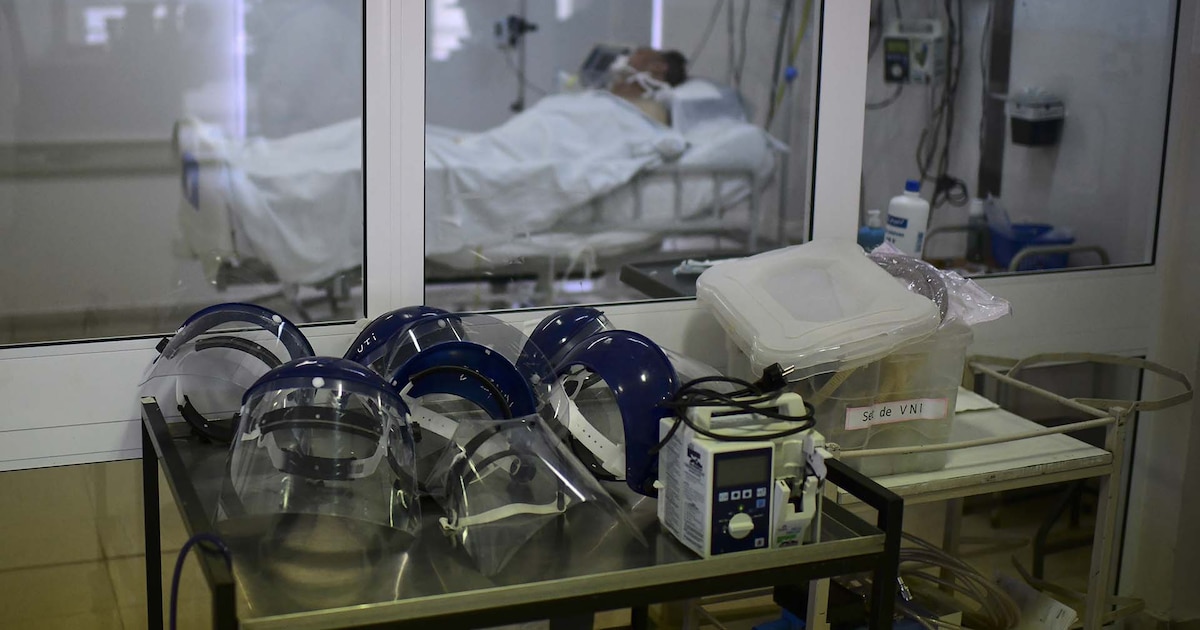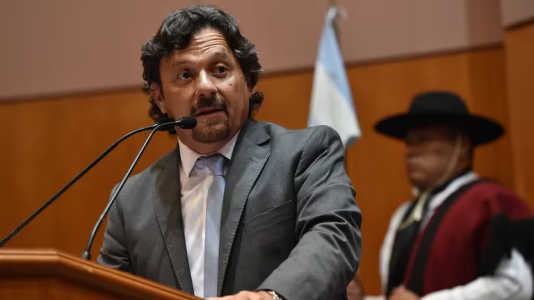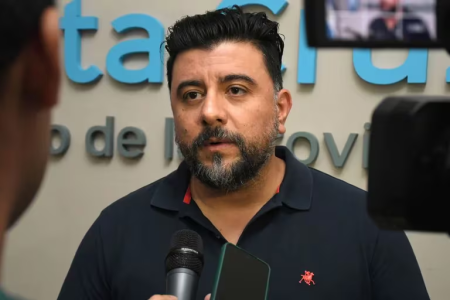All the Answers
Well-known member
More provinces are analyzing charging foreigners for care in public hospitals - Infobae

Source:

Más provincias analizan cobrarles a los extranjeros la atención en hospitales públicos
Salta comenzó a aplicar los cargos en marzo, mientras que Santa Cruz publicará la resolución para hacer implementar el mismo sistema en las próximas 24 horas. Otras dos provincias tienen proyectos de ley en esa línea
April 18, 2024
Salta began applying the charges in March, while Santa Cruz will publish the resolution to implement the same system in the next 24 hours. Two other provinces have bills along those lines.

The governor of Salta, Gustavo Sáenz. The president was the first to announce the charge to foreigners
The government of Salta became a pioneer by making official, through a Decree of Necessity and Urgency , the requirement of payment for health care to foreigners who do not reside permanently in the province. This decision set a precedent and led other jurisdictions to consider initiatives along the same lines: Santa Cruz will implement the same system shortly and in Neuquén and Corrientes there are already parliamentary discussions.
The precedent
The decision of the Salta government to demand payment for care was made official through DNU 129 at the end of February. In this case, the charge only covers temporary and precarious residents, who must cover the expenses they generate on their own or through health insurance.Exceptions are permanent and temporary residents, who will continue to receive free medical care, just like Argentines. Nor does it deny access to health in emergencies.
Due to its geographical position, the province borders three countries: to the north with Bolivia, to the west with Chile and to the east with Paraguay. The provincial Executive highlighted that many foreigners enter Salta to undergo treatment - in some cases, prolonged - and there are even "health tours" organized from abroad.
“I was the manager of the Maternal and Child Hospital and we have received cancer patients from Bolivia because the doctors there told them that they were not going to do the treatment and recommended that they travel to Argentina because it was free here,” said the Minister of health of Salta, Federico Mangione .
The official also explained that they not only enter the country for consultations, but also for “highly complex” surgeries that involve “very high-cost” supplies and prostheses.
By the beginning of April, and taking into account that March was the first month in which the province applied charges to foreigners, attendance at Salta hospitals had already dropped by more than 80% . Sources from the provincial Ministry of Health confirmed to Infobae that consultations dropped from an average of 30 people per day to less than 10, in the main hospitals.
Along these lines, Salta seeks to recover between 5 and 10% of the province's annual budget allocated to Health.

Ariel Varela, Minister of Health and Environment of Santa Cruz (Government of Santa Cruz)
The case of Santa Cruz
The second province to make the same decision was Santa Cruz, which this week announced that it will begin charging for care of foreigners in public hospitals. The measure, which covers temporary residents, will be made official in a resolution to be published in the Official Gazette of the Province.In dialogue with this medium, the provincial Minister of Health and Environment, Ariel Varela, indicated that he foresees a saving of between 15 and 20% of the monthly health budget.
According to its statistical data, 1,800 people from other countries are treated monthly in all the hospitals of the Patagonian province: 70% of them - said the head of the portfolio - are Chilean residents.
The rates will be 50% above what is established by the health center's nomenclature, that is, the cost for the hospital. For example, hospitalization in a bed in a medical clinic could cost between 150 thousand and 180 thousand pesos per day.
On the other hand, the charge will not apply to those foreigners with precarious residence: “We have foreign residents who are obviously already living in our province and some are very precarious. They present a hospital card and are treated in our public hospitals.” Meanwhile, emergencies will be attended to as usual.

Representative Verónica Lichter indicated that in the city of Villa La Angostura, “many times scarce resources are allocated to serving immigrants or tourists.”
Two new bills
In the province of Neuquén, the Together for Change (PRO-NCN) bloc presented a bill to tariff medical care for foreigners . The initiative includes tourists and transient or precarious residents; not to permanent residents.“Whoever needs medical attention will not be denied, but they must have insurance or pay,” said the author of the rule, Representative Verónica Lichter. Her project has the signature of the deputies of her block, Mercedes Tulián and Marcelo Bermúdez.
And he added: “In a context of health emergency, which we decreed two months ago, diverting scarce resources to foreigners does not seem to us to be the right way. Therefore, like in so many neighboring countries, when we go there and need, due to an accident or something, we are charged for medical care that is the same here.”
Along these lines, the legislator indicated that in the city of Villa La Angostura, “ many times scarce resources are allocated to serving immigrants or tourists.”
It should be noted that in cases of emergencies, such as tourists who suffer an accident or get lost in the mountains, the initiative contemplates that the Argentine State will attend to them and then recover the costs generated.
Meanwhile, in Corrientes, legislator José Antonio Romero Brisco (Autonomist Party) presented a similar initiative. The rule proposes that all “transitional” or “precarious” residents must cover their costs on their own or through health insurance.
“Provincial public health services will be provided equally and without distinction, both to foreigners who have the status of 'permanent residents', and to those who are determined as 'temporary residents,'" the text clarifies.
Care cannot be denied in emergency cases and, as in the project presented in Neuquén, “the enforcement authority will subsequently arbitrate the means to collect the expenses incurred . ”

